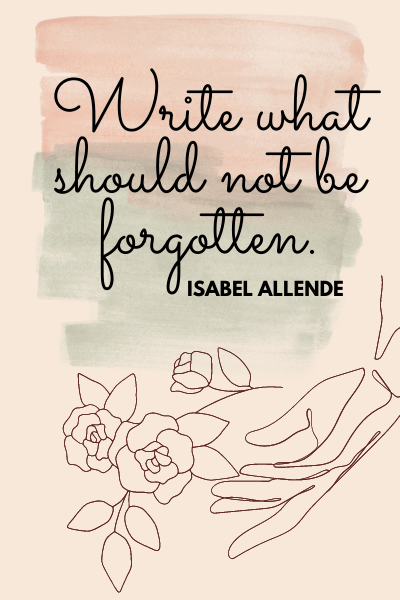When writing a blog, being too invested in thinking can be harmful. Thinking too much can be useful sometimes. It can aid in decision-making and problem-solving. However, It can lead to unnecessary delay and hinder the creation of content that your audience would enjoy.
The longer we sit passively, the more the mind becomes a critic.
Do you remember writing a blog post and feeling unsure if it was good enough? You want people to enjoy reading it and understand what you’re saying. If it’s not good enough, they might not care or be helped by it. This can cause stress and worry, making it difficult to get started.
Sometimes, we put things off because we fear failure and rejection. This can lead to self-criticism and procrastination, which means we delay doing things until the last minute. But procrastination doesn’t mean we’re lazy or unproductive – it’s just a way we cope with our fears.
You don’t need to listen to every voice in your head.
As a writer, it can be hard to know when to listen to your inner voice and when to ignore it. You don’t need to listen to anyone else’s opinion — not even mine! And you definitely shouldn’t let fear stop you from writing or publishing what you want, whether that’s a blog post or a novel.
You’re not up against an army. You’re up against yourself.
The hardest part of writing is the actual act of putting words on the page. That’s why there are so many writers who never finish what they start, and why most people don’t write at all. It takes a lot to get something out of your head and onto paper (or screen). There will be moments when you feel like giving up, but as long as you have faith in yourself and your abilities, you can get through it!
Writers are way too hard on themselves.
There’s nothing wrong with having high standards, but writers need to learn to let go of the idea that they can’t write a story until it’s perfect, or until they have all the answers.
- Writers need to learn to let go of the idea that they don’t have enough time to write a story because they have other things going on in their lives (and there will always be other things going on).
- Writers may think that if they don’t spend hours and hours contemplating every detail and making sure everything makes sense before writing a single word, then their work won’t be good enough. But this is just not true! If you’re someone who has trouble getting started on projects because you keep overthinking everything: try starting small—even if it’s just one sentence at first—and see what happens next!
When it comes to blog writing, overthinking is overrated.
Writing is a challenge. It’s also an opportunity for you to learn about yourself and express yourself through written words. And sometimes, writing can be downright uncomfortable—like when you’re having trouble finding the right way of saying something or struggling with a particularly stubborn word choice. But here’s the thing: that doesn’t mean you should avoid discomfort like the plague. In fact, if you want your work to be any good at all then embracing discomfort is essential!
Writing a blog is something that needs to be experienced from the inside out—not from a bird’s eye view (or overthinking).
Writing a blog requires you to deeply connect with it, but not overthink it. You must feel it, embrace it, and connect with its energy and emotion. Writing takes courage, vulnerability, and an open mind. To be a good writer, you must go on a journey of self-discovery and embrace the internal aspects of writing.
Writing is not just for showing off, but to touch people’s souls. When we embrace this art form and connect with it intimately, we can create works that resonate deeply with our readers. So, let’s not just observe writing externally. Instead, let’s be intimate participants and discover the essence of this incredible art form.
The more you learn about writing, the more you’ll want to know about how to write better, and how to write more often.
You can’t learn everything in one day. Practice makes perfect; be patient with yourself and don’t get discouraged by your mistakes. Overthinking leads to procrastination and frustration, which can lead to giving up entirely on your blog because it isn’t as good as you want it to be yet.
There’s a lot of information out there about how best to practice writing: read books on the subject, join online communities for writers who are willing to give advice based on their own experiences (like this one), attend conferences related specifically towards getting better at writing, etcetera ad infinitum until infinity… but really all there really is left after all that is patience! Remember: no one was born knowing how—it took us years upon years of practice before we became experts ourselves!
Overthinking as a blogger is never productive or helpful in any way!
Overthinking is not helpful, it’s not productive and it can lead to writer’s block. If you are a blogger who overthinks, chances are you’ll stop writing altogether because of how much time you’ve spent second-guessing yourself!
While there are some writers who pride themselves on their ability to overthink things before writing them down (and then edit after), this isn’t the way most writers work. When it comes to blogging and content creation in general, we need to be able to write quickly if we want our blogs/posts/articles etc., …to be read by anyone other than ourselves!
Conclusion
Okay, so we know this has been a long post and you may be wondering what is the takeaway here. Well, we want to leave you with two main points. First, it’s important to remember that overthinking isn’t just an issue for writers—it can happen to anyone who spends too much time dwelling on things. And second, never forget that sometimes it’s okay not to have all the answers!
We hope these tips will help you make your writing process less stressful and more enjoyable; after all, if there’s anything we believe in at Easy Write Now, it’s enjoying yourself while doing great work.







































